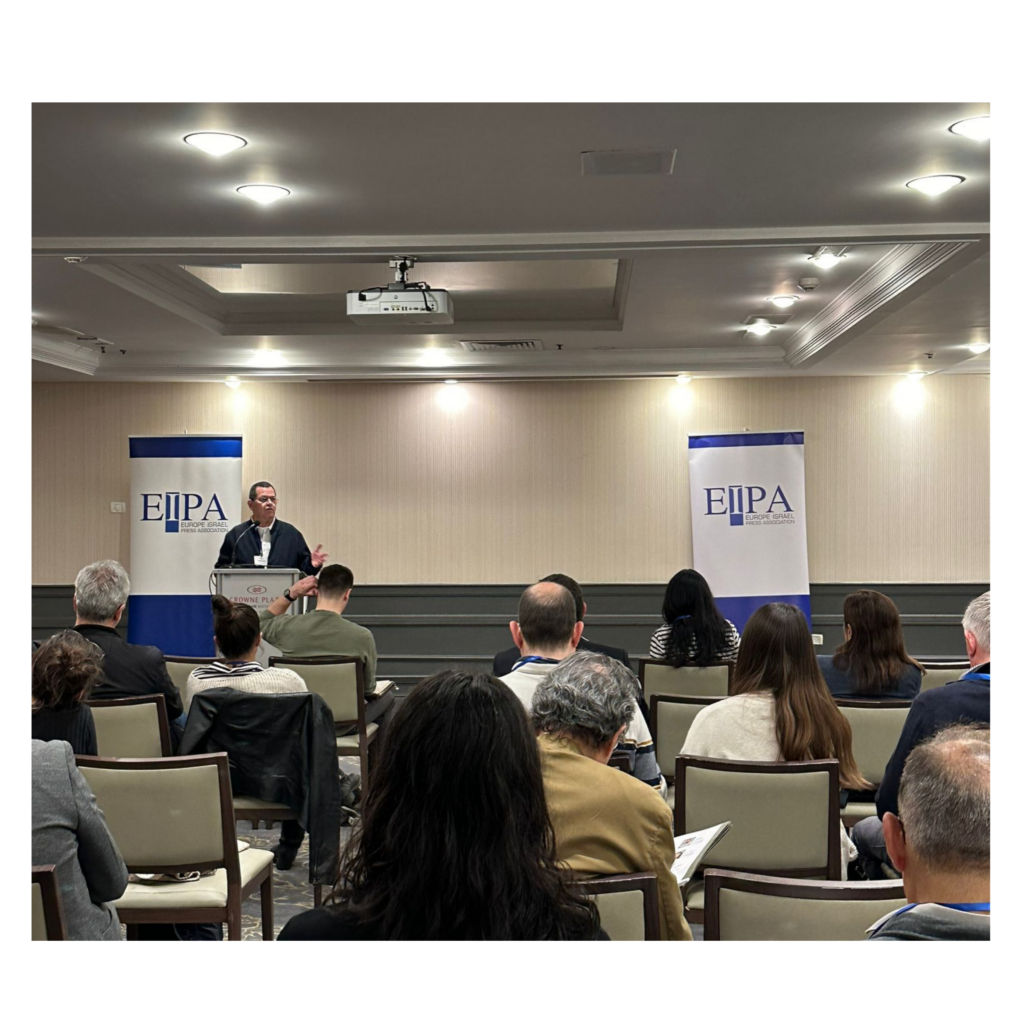Our EIPA colleagues are organising a press trip to Israel. Yesterday, participants were treated to a thought-provoking briefing and geopolitical overview of the Middle East by Zohar Palti, head of the Political-Military Bureau at Israel Ministry of Defense. Palti, who has a distinguished background including leadership roles in Mossad’s intelligence directorate and the IDF Intelligence Corps Research Division, provided invaluable insights.
Additionally, Marcus Sheff, CEO of The Institute for Monitoring Peace and Cultural Tolerance in School Education (IMPACTse), delivered an enlightening briefing. Based in London and Tel Aviv, Sheff has spent over a quarter of a century analysing global curricula to foster peace and tolerance in line with UNESCO standards. His policy recommendations have significantly influenced systematic reforms in national curricula worldwide.





















